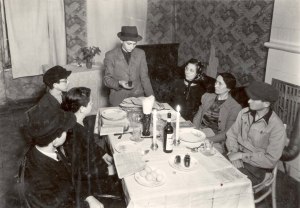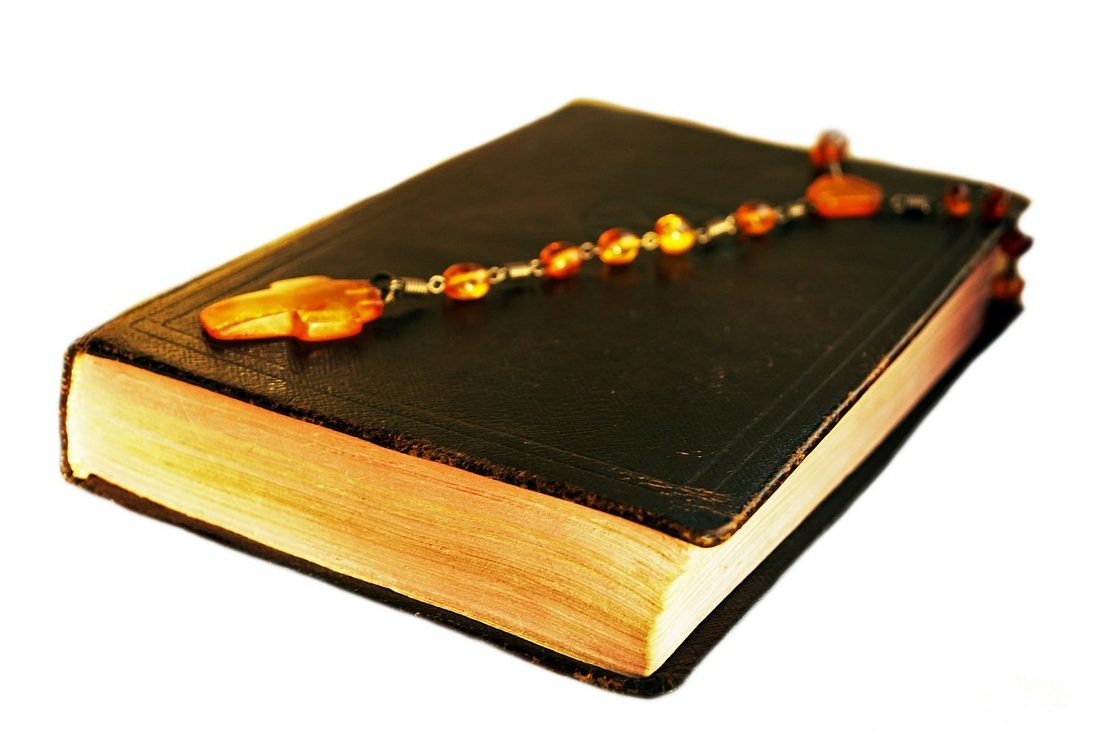In a few days time we shall have the most important week of the year. After World War II could come a time again where there was no fear any more to come together to commemorate the Yetzi’at mitzrayim or exodus from Egypt and to show our thankfulness to God for saving our people.
We all should remember that over 400 years of tears and sweat and blood and agony came over the Israelites. When it all became too much, HaShem looked down at His suffering people and sent them a deliverer – Moshe. Once more in history, we could see how God came to speak by His sent ones or prophets to warn the world or to bring unbelievers to other thoughts. These days we remember also how some people were so stubborn that they ignored God’s warnings or thought they were stronger than God. This made The Elohim to sent 10 plagues upon the land until Pharaoh finally lets up and allowed the Israelites to go away from the land of Egypt.
The people left as quickly as possible, leaving no time for their bread to rise, hence the flat, matsah or unleavened bread.
HaShem commanded them to keep this zikaron or memory alive by teaching it to their children and their children’s children. This way, everyone would remember how they were saved from slavery by their God.
Before they left, however, one crucial deed was to be done so that the Destroyer, or Angel of Death, would pass over them and not kill them in the 10th plague – the death of the firstborn. The Israelites in Bible times, who were saved from sudden slaughter when they obeyed God by putting blood on the lintels and doorposts of their home. The Angel of Death passed over, and the Hebrew children lived to tell their great story of God’s faithfulness. There was bloodshed, which does not make us happy, but remembering how the Elohim had to take such serious measures lets us also to think about the seriousness of God His Laws and of God His People, and reminds us of the incredible Power of God.

In Nazi time our family members with brothers and sisters in our faith, did everything to keep gatherings in secret. That seyder was more important than any other meal. Also, the days around it, cleaning the house, taking time to reflect on the inner cleanliness or purity, and afterwards meditating on the ways God helped out His People so many times and protected them from lots of dangers even from extinction.
After Rosh Chodesh all eyes got focused on that memorial day. The women making preparations for making the seder special. All thoughts went to A Holy week in remembrance of the Blood of life.
 The Passover seder is a religious observance by God’s mitzvah, central to the core of Jewish existence and survival. If there is one Jewish observance in the year we all try to observe regardless of circumstance, it is the seder. But in 2020 it shall once again not be like it normally should be. In the pre-war period even in the ghetto’s most of our brethren and sisters wanted to share their love and hope together, and as such in several ghetto’s believers in the Mighty Elohim gathered to remember His marvellous act of saving His chosen People. Our great-grandparents, grandparents and parents knew it was better not to show themselves in public or to let it be known they would come together to have a memorial meal.
The Passover seder is a religious observance by God’s mitzvah, central to the core of Jewish existence and survival. If there is one Jewish observance in the year we all try to observe regardless of circumstance, it is the seder. But in 2020 it shall once again not be like it normally should be. In the pre-war period even in the ghetto’s most of our brethren and sisters wanted to share their love and hope together, and as such in several ghetto’s believers in the Mighty Elohim gathered to remember His marvellous act of saving His chosen People. Our great-grandparents, grandparents and parents knew it was better not to show themselves in public or to let it be known they would come together to have a memorial meal.
We wonder which advice they would give in these circumstances. Now the enemy is not a human being but an invisible element of nature.
As in the past the memorial meal was a remembrance of the Yetzi’at mitzrayim it is also a sort of feast, looking with thankfulness for God’s protection and commemorating that it is not as easy as many might think to get rid of the People of God. In our remembrance, our goal is also that we draw what lessons we can for our own survival, for the renewal of our faith in God, His guiding care, and our tikvah and commitment to make this world a better place.

The Passover seder is the time in the year when all the generations are gathered, often ingathered from different parts of the country, to tell and listen to the central story of the Jewish faith and to bring into remembrance to the next generations how God has always been the Best Guide and Helper. At that moment, when attention is riveted, it is a time to retell the story of the Shoah, the greatest catastrophe in modern times that came over our people. The Nazis thought they had found the “Final Solution to the Jewish Question“, with the Endlösung der Judenfrage. Exclusions from normal life, beginning with boycotting Jewish businesses in April 1933, furthermore bringing the Jews in local isolation and later in ghettos to segregate Jews from the rest of the population, torturing, mass shootings, pogroms, and bringing the Jews to extermination camps, where millions found their death, with other real lovers of God, like bible Students, Jehovah’s Witnesses, but also with those which were different, like Slavs (chiefly ethnic Poles, Soviet civilians and Soviet prisoners of war), the Roma, the “incurably sick”, political and religious dissidents, and gay men.
From the 14th of Nisan we take about a week to remember all those in our prayers and listen to stories around those terrible events, with the knowledge that we should keep telling such incidents, so that they shall stay imprinted in the memory of our people.
The last five years we see again a rise in anti-Semitism, but this year we have an even greater enemy making it dangerous to come physically together. Even family meetings should now best be avoided.
We are advised not to leave our home for any unnecessary reason, other than to exercise once a day or to go to the pharmacy, or to provide care or to help a vulnerable person. But when food or medicine can be ordered by phone or online, to drop them off at our home, this would be the best way to get these. Gatherings of more than two in parks or other public spaces have been banned, which has us for the last few weeks not having any public meeting, leaving the synagogue empty.
Not to have visitors, such as friends and even family, in your home, is what makes it so ‘horrible’ this year. Under the restrictions, having everybody to stay at home and only leave if they have a “reasonable excuse”, we as a community should listen to these stringent measures and keep everybody safe, and should not invite people to the Passover seder.

In these circumstances, we should have our remembrance meal for Passover in a very limited family circle only with housemates, even though we would prefer others to share in this important evening.
+
Preceding
Beginning of weeks for the Feasts of deliverance
A meal as a mitzvah so that every generation would remember
A night different from all other nights and days to remember
Let’s Think About Redemption Differently
Zeman Chereisenu – the time of our freedom
++
With the same question
- No idea yet for 14 Nisan or April the 8th in 2020 Corona crisis time
- Only a few days left before 14 Nisan
+++
Find also to read
- Actions to be a reflection of openness of heart
- Solution for Willing hearts filled with gifts
- 9 Adar and bickering or loving followers of the Torah preparing for Pesach
- Purification and perfection
- First month of the year and predictions
- Why Fuss over a Little Leaven (Yeast)?
- Search for any remnant of chametz
- High Holidays not only for Israel
- Vayikra after its opening word וַיִּקְרָא, which means and He called
- Yom Hey, Eve of Passover and liberation of many people
- The son of David and the first day of the feast of unleavened bread
- Celebrations pointing to events of ultimate meaning
- Shabbat HaChodesh Parshat Tazria, Parshat Metzora en tzara’at
- At the Shabbat HaChodesh: readings about blood, liberation and purification
- A night different from all other nights and days to remember
- Egypt, Moshe and Those who never felt they belonged there
- Why Fuss over a Little Leaven (Yeast)?
- Search for any remnant of chametz
- A Purim none of them would forget
- A Holy week in remembrance of the Blood of life
- Ki Tisa – Torah Portion
- Shabbat Pesach service reading 1/2
- Memorial Observance 1909
- 14-15 Nisan and Easter
- This day shall be unto you for a memorial and you shall keep it a feast to the Most High God
- Fraternal week-end at Easter in Paris
- Most important weekend of the year 2016
- Preparation for Passover
- Wednesday 5 April – Sunday 9 April 30 CE Pesach or Passover versus Easter
- Preparing for 14 Nisan
- Thinking about fear for the Loving God and an Invitation for 14 Nisan
- Preparing for the most important weekend of the year 2018
- The Most important weekend of the year 2018
- The Most special weekend of the year 2018
- Able to celebrate the Passover in all of its prophetic fulfilment
- The Memorial Supper
- Soon it shall be Erev Pesach and Passover 2019
- A great evening and special days to look forward in 2019
- Sunday, May 19th, 2019 = 14 Iyar 5779
- Count Your Blessings — Count The Omer
- Seven Bible Feasts of JHWH
- Eight days of sprinkling lights
- Most important day in Christian year
- Easter holiday, fun and rejoicing
- Coming together for a meal to remember a special lamb
- Fellowship over meals
- 75th anniversary of the liberation of Auschwitz






10 gedachten over “First time since Nazi time no public gathering”